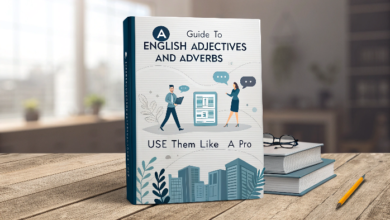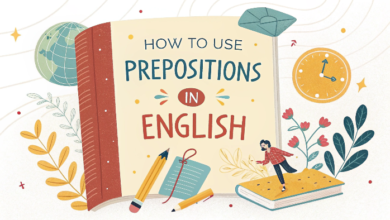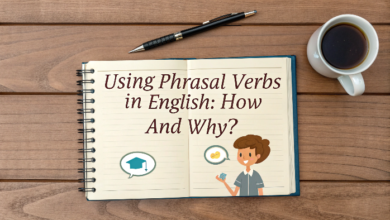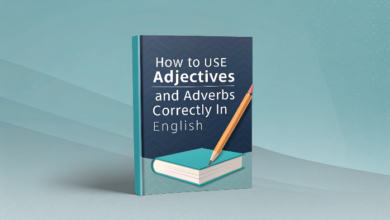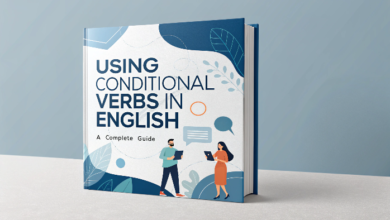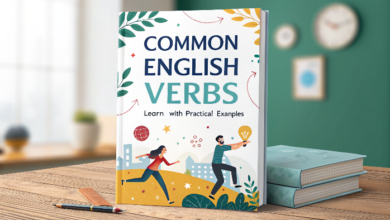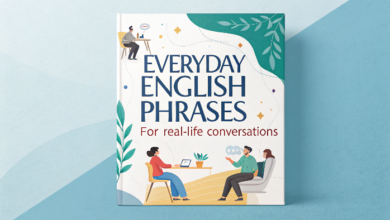How to Use Modal Verbs in English: Can, Could, Should, Must, and More
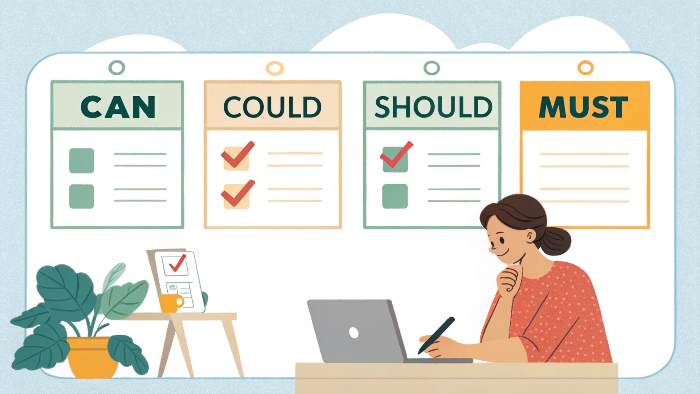
How to Use Modal Verbs in English: Can, Could, Should, Must, and More
Modal verbs are essential tools in the English language that express ability, possibility, necessity, permission, advice, and more. They are auxiliary verbs,
meaning they are used with the main verb to modify its meaning. Understanding how to use modal verbs correctly is crucial for achieving fluency and making your speech more natural and precise. In this guide,
we’ll explore the most common modal verbs — can, could, should, must, may, might, and others — and provide examples, explanations, and exercises to help you master their usage.
What Are Modal Verbs
Modal verbs are a type of auxiliary verb that help express different meanings, such as:
Ability
Permission
Possibility
Obligation
Advice
Prohibition
Modal verbs do not change according to the subject and are always followed by the base form of the main verb (without “to,” except for ought to).
Examples of Modal Verbs
Can: Ability, permission
Could: Past ability, polite requests, possibility
Should: Advice, recommendation
Must: Necessity, strong recommendation, obligation
May: Permission, possibility
Might: Possibility (less certain than may)
Will: Future predictions, promises, willingness
Would: Polite requests, hypothetical situations
How to Use Common Modal Verbs
a. Can
Can is used to express:
Ability (present/future)
Example: I can swim.
Permission (informal)
Example: Can I use your phone?
Possibility
Example: It can get very hot in the desert.
Negative form: Cannot (can’t)
Example: He can’t drive yet.
b. Could
Could is the past tense of can and has several uses:
Past ability
Example: When I was younger, I could run faster.
Polite requests or offers
Example: Could you help me with my homework?
Possibility
Example: It could rain later today.
Hypothetical situations (conditional)
Example: If I had more time, I could travel around the world.
Negative form: Could not (couldn’t)
Example: She couldn’t attend the meeting yesterday.
c. Should
Should is used to:
Give advice or recommendations
Example: You should study for the test.
Express expectation or obligation
Example: She should arrive by 6 PM.
Express a polite suggestion
Example: You should try the new restaurant.
Negative form: Should not (shouldn’t)
Example: You shouldn’t skip meals.
d. Must
Must expresses:
Strong necessity or obligation
Example: You must wear a helmet while riding a bike.
Strong recommendation
Example: You must see that movie — it’s amazing!
Deduction or certainty (something is definitely true)
Example: She must be at home; I can see her car outside.
Negative form: Must not (mustn’t)
Example: You mustn’t smoke in this area.
e. May
May is used for:
Permission (formal)
Example: May I leave early today?
Possibility (less certain than “can”)
Example: It may snow tomorrow.
Requests (polite)
Example: May I borrow your pen?
Negative form: May not
Example: You may not enter without an invitation.
f. Might
Might is used for:
Possibility (less certain than may)
Example: She might come to the party later.
Suggestions (less direct than should)
Example: You might want to reconsider your decision.
Negative form: Might not
Example: I might not be able to attend the meeting tomorrow.
g. Will
Will is used for:
Future predictions or actions
Example: I will call you tomorrow.
Promises or offers
Example: I will help you with that project.
Willingness
Example: I will do the work if you ask me.
Negative form: Will not (won’t)
Example: He won’t agree to the plan.
h. Would
Would is the past tense of will and is used for:
Polite requests or offers
Example: Would you like some coffee?
Hypothetical situations or conditions
Example: If I were rich, I would travel the world.
Past habitual actions
Example: When we were kids, we would play outside all day.
Negative form: Would not (wouldn’t)
Example: I wouldn’t recommend that restaurant.
For more, go to the next page

